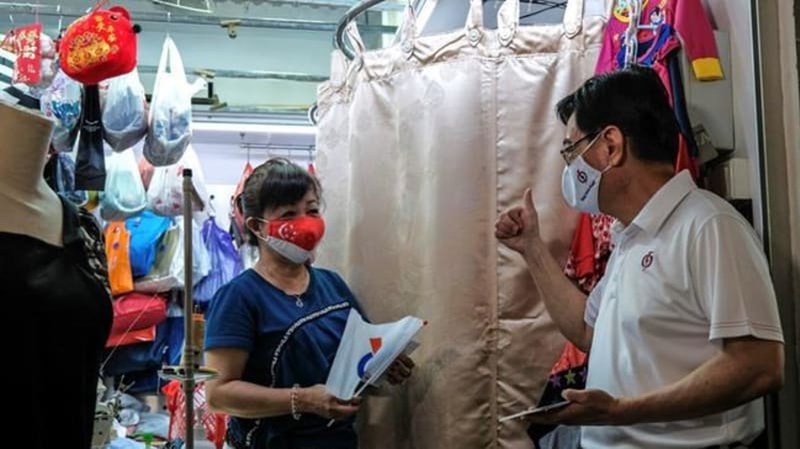
Singapore polls open; governing party set to extend power
SINGAPORE — Wearing masks and plastic gloves, Singaporeans began voting Friday in a general election that is expected to return Prime Minister Lee Hsien Loong’s long-governing party to power.
About 1,100 polling stations across the city-state were open at 8 a.m., with strict safety measures in place for Southeast Asia’s first national election since the coronavirus pandemic began. Older voters were given priority in the early morning hours as protection against the virus, and people being treated for COVID-19 or under quarantine at home were not allowed to vote.
The health crisis and concerns over an economic recession are a bonanza for Lee’s People’s Action Party, with voters likely to opt for stability. It faces 10 small opposition parties that are contesting the 93 parliamentary seats mostly on a one-on-one basis against the PAP. The opposition has said it does not want to govern, but urged the 2.65 million eligible voters to reduce the PAP’s overwhelming majority in parliament and deny it a “blank check.”
The PAP has dominated politics since 1959, when Lee’s father, Lee Kuan Yew, became Singapore’s first prime minister and built the resource-poor city-state into one of the world’s richest nations during 31 years in office. In 2015, the party won 69.9% of the total vote and 93% of parliamentary seats. But it has also been criticized for tight government control, media censorship and use of oppressive laws and civil lawsuits against dissidents.


